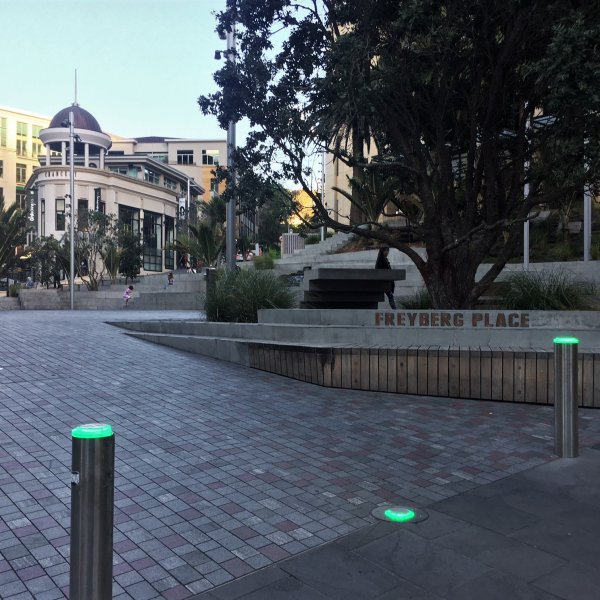Building a world-class city
Auckland is now well on the road to becoming a "worldclass harbour city", says Heart of the City chief executive Viv Beck. She says the city is now going through the most significant change in its history. For evidence, look up at the cranes on the horizon. There have never been so many active at one time. Beck says the accelerated development is a sign of new-found confidence in the city. She says it will be a different place to live and work five years from now.
"It will be better for all the groups of people who use the city. There's a development plan for residents, there's a development plan to support business and there's a development plan to support visitors to the city. Most people see that as positive."
There's hard evidence to back Beck's optimism. "We've got more people coming to live in Auckland. There are more people visiting the city. We measure things like pedestrian counts and spend, these indicators are good. If you look at the numbers for office space and retail vacancies, they show growth and a thriving city. We've got developing public transport and the perceptions are good."
Taken together this makes a city successful on an international scale. It is important to have a vibrant city centre - a busy place that people enjoy. Yet Auckland is not without challenges. One of Beck's top concerns is for the city to stay vibrant when there is so much disruption.
Among other things this means keeping as much commercial activity going while developments like the City Rail Link result in closed streets and diversions. The art of managing this comes down to getting the various organisations to work together and coordinate their efforts. "You wouldn't make a major change to a company without drawing up a clear plan of the different things you need to do and who is involved. We have a massive change going on here. It can't just happen with individual projects where no thought is given to the consequences on other projects and on businesses. There are people working here and people living here. There are cruise ships arriving delivering people to Lower Queen St. It's important all these things are considered."
This is the focus of Heart of the City's work. Beck says it means talking to the people involved in the projects and raising the importance of these issues. "We want them to reflect on the impact on business through the change and understand that a city is about many components that must work together. Things can't happen in isolation." Take the CRL, Beck says building a new rail line through the city centre is a significant engineering feat. When it is complete people will be able to come and go in ways they can't do now. "But it can't happen in isolation of its impact on business and on other people who use the city. We're now moving towards having the right conversations with the right people and making sure it all happens in a more co-ordinated way", she says.
Beck says you don't want to let everything rip, then come in behind and pick up the pieces.
Another concern is the impact of homelessness and begging on central Auckland. It is a complex problem and there is no single, simple solution. Beck's plan is to make sure homeless people can have help if they need it. This means bringing interest groups together in a broader discussion: the social services organisations, but also business and the council. "We got good traction by first deciding that we have to end homelessness in the city we don't just want to manage it. We need people to join forces to resolve the issue," she says. "There's an initiative called Housing First which different providers are getting behind. The new City Missioner Chris Farrelly was great when he came on board. Another organisation called Lifewise was already working on homelessness. Now they are working together." The model means giving people a home first, then wrapping other support services around them. There is targeted rate-funding for short-term emergency housing at James Liston Hostel. From there they should move to a home.
Auckland is still a work in progress and while the focus is on five years from now when the City Rail Link opens, several developments will be complete sooner. These include the Commercial Bay development at the bottom of Queen St, part of which is scheduled to open in 2018, and the SkyPath project to build a walking and cycle route over the Harbour Bridge. A new five-star Park Hyatt hotel will open in the Wynyard Quarter in the same year.
Next year will see improvements to Freyberg Square which will revitalize High St. But Beck warns against complacency. She says it is important to think even further ahead and determine long-term priorities for the city. She says we don't want to get caught out again and need to do a lot of catching up in a hurry. This includes planning for a stadium. She says that is aspirational and may not happen for 15 years, but it is important to have a stadium within walking distance of the central city. "We need to start thinking about it now. It means bringing together the various organisations with an interest in a new stadium now, not leaving it to the last minute".




